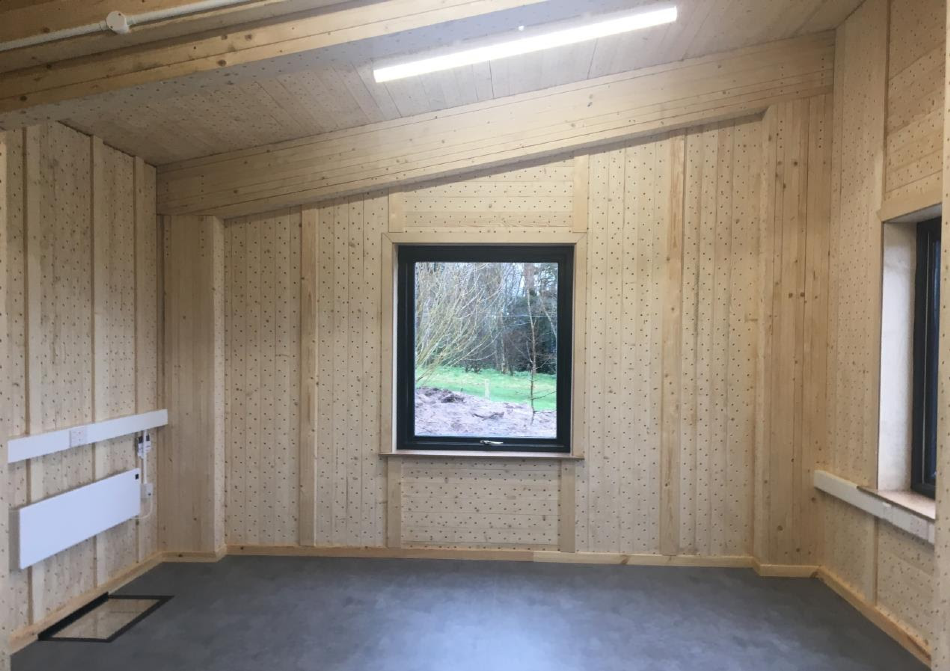Mar 18 2020
Engineers at the University of Liverpool, alongside industrial partners, have designed and built an adhesive free timber office building at Ness Gardens on the Wirral in order to evaluate a more environmentally friendly construction method.

The key idea behind the new `green’ office structure is to use timber to connect timber, and to use timber to reinforce timber. Timber is one of the very few industrial materials that can be 100% sustainable.
Engineers designed and constructed a large section of the office space using adhesive free laminated timber (AFLT) beams and adhesive free cross laminated timber (AFCLT) panels, and densified wooden dowels and plates are used to connect beams with columns rather than metallic fasteners.
The dowels and plates are made using softwood from sustainably-harvested timber and compressed using a heated hydraulic press to reduce thickness whilst making it denser and stronger than common hardwood.
The `green’ office, which is part of an EU-funded INTERREG research project, will allow researchers to evaluate the performance of adhesive free engineered wood products and compressed wood fasteners in a real life environment over the next five to ten years, and compare it to conventional methods that use adhesives and metal.
Located at Ness Gardens on the Wirral, the 35m2 office structure will provide a functional workspace for researchers from the University of Liverpool’s Institute of Integrative Biology using the Brian Moss Aquatic Facility, one of Europe’s largest, most technologically advanced facilities for investigating environmental impacts on freshwaters.
Liverpool engineer, Dr Zhongwei Guan, an international timber engineering and composite expert, who is leading project, said: “This is an exciting real world project. The structure we have designed and built is arguably the first building in the world to be constructed using this compressed wood technology!
“It showcases a more environmentally friendly method of connecting wood and joining structures using compressed wood dowels and fasteners without the use of adhesives or metal products.
“The prototype has been developed as part of our INTERREG EU research project to design, demonstrate and take forward new adhesive free engineered wood products for use in the construction industry.”
Dr Stewart Plaistow, Senior lecturer in Evolutionary Biology in the Institute of Integrative Biology, said:
“I am delighted that this new facility which will support research projects investigating the effects of climate change on shallow fresh waters.
“The new space will allow researchers to process samples on site, enhancing the mesocosm facilities capabilities even further. It’s been a real pleasure seeing “green” research projects from different faculties working together.”
The office was designed and built by researchers from the University of Liverpool’s School of Engineering, together with FRCS of the University, a design engineer and contractor, and local businesses, SticX Ltd and Cunliffe’s Architects.
The £4M EU Interreg project includes the National University of Ireland, Galway, Université de Lorraine, Technische Universität Dresden, Luxembourg Institute of Science and Technology and the Office économique wallon du bois.
Interreg is a European Territorial Cooperation programme with the ambition to make the North-West Europe area a key economic player and an attractive place to work and live, with high levels of innovation, sustainability and cohesion.
Ness Gardens, situated on the Wirral Peninsula overlooking the Dee Estuary, were founded in 1898 by Arthur Kilpin Bulley, a Liverpool cotton merchant with a passion for gardens and for plant collecting. The gardens were donated to The University of Liverpool in 1948 by Lois Bulley, the daughter of the founder.
Source: http://www.liv.ac.uk